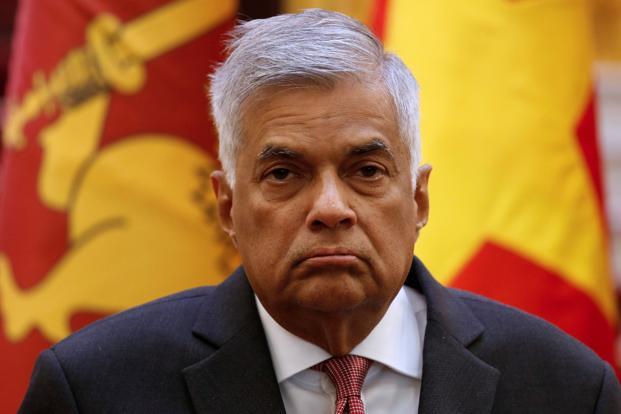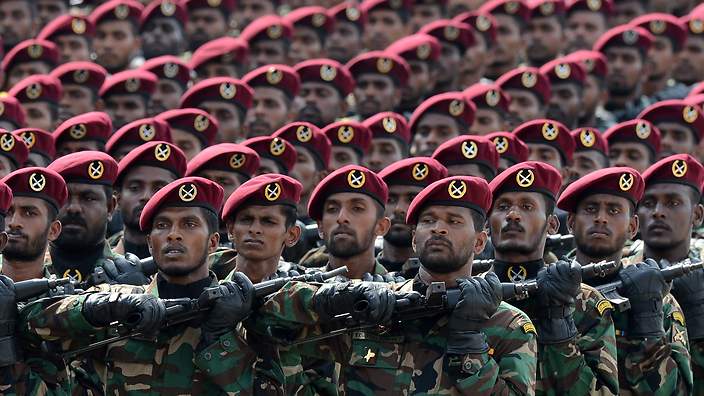After a mob attacked a UN safe house for Rohingya refugees on 26 September near the Sri Lankan capital of Colombo, cabinet spokesman Rajitha Senaratne came out with some of the strongest public words I’ve seen leveled by a Buddhist public servant against fellow, self-proclaimed Buddhists. “As a Buddhist I am ashamed at what happened,” Senaratne told the press a day after the attack. “Mothers carrying very young children were forced out of their safe house which was attacked by a mob led by a handful of monks. This is not what the Buddha taught. We have to show compassion to these refugees. These monks who carried out the attacks are actually not monks, but animals.”
Strong words from a government that’s struggling to convince a skeptical Buddhist establishment it isn’t attempting to undermine Buddhism’s interests. One might read Senaratne’s condemnation as a subtle plea to mainstream Buddhists: “we are sincere, critical Buddhists.” Not only has it been accused by detractors of pandering to religious minorities, the center-right United National Party is also being pressured to underwrite the state patronage and protection of Buddhism that is guaranteed by Sri Lanka’s current constitution.
In 2015, Mr. Wickremesinghe pledged to deliver a new constitution, with an interim report submitted to the Constitutional Assembly by its steering committee on 21 September this year. With a simple removal of the words “The republic of,” and the retention of just “Sri Lanka,” two proposed alternative provisions within the interim report apparently strip the state of constitutional responsibility to maintain Buddhism’s privileges. This comes at a time when Buddhist nationalism is boiling over across South and Southeast Asia, blending into a toxic mix with Islamic fundamentalism and a refugee crisis from Myanmar that stirs up anti-Buddhist sentiments as far away as Turkey (the first thing some Turkish friends asked me about Buddhism was whether we approved of what was happening in Myanmar).

The cerebral debate around the new constitution is actually quite far-reaching. What of Sri Lanka’s oneness and plurality, of harmony in diversity? There is the question of Sinhala-Tamil reconciliation after the Sri Lankan Civil War, which left over 100,000 people dead by May 2009. These fault lines of disharmony cover ethnic, cultural, and religious divisions. There is also the popular Sinhalese fear of a resurgence of Islamic fundamentalism, which has been exacerbated by the previous government’s botched treatment of defeated Tamils. The reports of abuse of LTTE soldiers and Tamil civilians attracted international criticism of ousted ex-PM Mahinda Rajapaksa, who notably in July joined senior Buddhists in warning Mr. Wickremesinghe that there would be severe political repercussions if state protection of the sasana wasn’t spelled out in the new constitution.
Where does this mess leave the current government, which is pushing back against extreme Buddhist-Sinhalese nationalists on the Rohingya issue, trying to assure Buddhists that their privileges have not been withdrawn, and claiming to treat all religions equally?
This island nation has seen itself as the eternal custodian of the earliest and most enduring expression of Theravada Buddhism, going all the way back to emperor Ashoka’s son Mahinda and daughter Sanghamitta. They, in the 3rd century BCE, arrived on the island to spread the Dharma at the request of one of the island’s great kings, Devanampiya Tissa of Anuradhapura. Be it a collection of kingdoms, a colonial subject under the Portuguese, Dutch, or British, or a modern republic, Sri Lanka has always woven Buddhism into its body politic, infusing it with a proud patriotism and sense of spiritual destiny.
How can both demands being made of the new constitution—state protection of Buddhism and equality and harmony of all religions—be realized by governments at the mercy of those shifting, often earthshaking tectonics known as “events?”
Related news from Buddhistdoor Global
Sri Lankan Prime Minister Reaffirms Buddhism as “First Among Equals” in Country’s Constitution
See more

